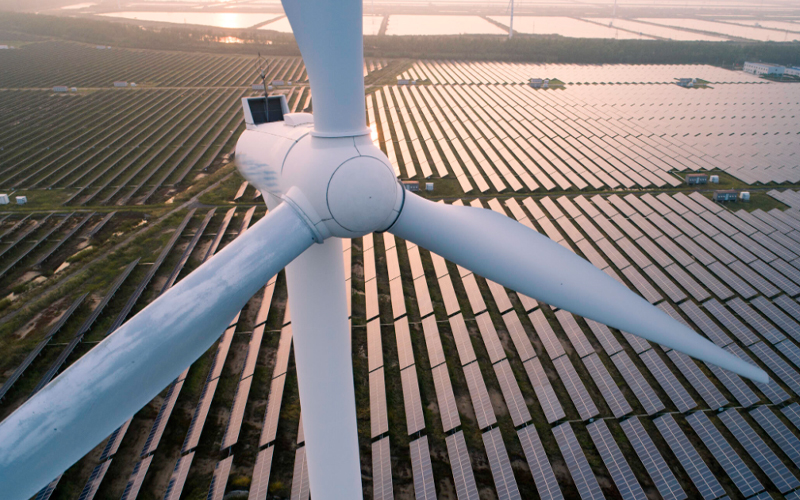No evening Netflix, mountains of dirty laundry, pitch black nights with the day’s sweat lingering on skin: just a glimpse of life without power for 24 hours. Indeed, such a situation throws the most routine tasks into disarray. This disruption underscores the invisible thread of energy that runs through our daily lives. Every facet of our existence, from the comfort of our homes to the food on our plates, to the complex systems that keep society running relies on a constant flow of energy.
Understanding energy challenges is crucial for uninterrupted energy supply. Here are some key issues:
- Sustainability and climate change: Clean energy transition demands affordability, reliability, and climate action.
- Grid modernisation: Ageing infrastructure and increasing demand require smarter grids with better integration of distributed renewable energy resources.
- Security threats: Critical infrastructure needs protection from disruptive attacks.
- Prosumer (producer + consumer) rise: New market models and management approaches must adapt to decentralised producers.
- Demand and supply flux: Sophisticated forecasting and balancing mechanisms are needed to manage unpredictable demands.
- Regulatory complexities: Navigating the ever-changing regulations and policies demands agility.
The time has come to explore sustainable solutions, invest in resilient infrastructure, and consume energy responsibly. Hope emerges in the form of artificial Intelligence (AI). Poised for a 50% surge by 2024, AI in the energy industry is not just a trend, it is a $7.78 billion rescue mission, as estimated by industry research.
The AI energy sector
AI in the energy industry heralds a revolution that tackles pressing issues of today while establishing groundwork for meeting future demands. Here is how AI improves the energy sector:
- Renewable energy optimisation
- Demand forecasting and management
- Smart grid management
- Enhanced cybersecurity
- Decentralised energy management
- Predictive maintenance
- Regulatory compliance
Renewable energy sources like solar, wind and hydro energy present a powerful solution to combat climate change. However, they also pose unique challenges. Unlike traditional, centralised fossil fuel plants, renewables are often intermittent and geographically dispersed, their output fluctuates depending on weather conditions and location. The unpredictability makes integration with the grid a challenge. AI can help by optimising renewable energy production. By forecasting weather patterns and maximising output, AI also eases renewable energy integration with the grid, making power supply more reliable.
For example, imagine a solar farm. Without AI, the electricity output fluctuates, and transmission is passive. However, when powered by AI, the farm predicts sun irradiance, adjusts panels, stores excess energy and integrates seamlessly with the grid for stable, sustainable energy flow.
Powering a bustling city requires understanding consumption patterns. By anticipating exact energy needs or demand forecasting, and promoting smart consumption or demand management, system overloads can be avoided and everyone can have access to the power they need. AI plays a crucial role here, optimising resources and minimising the need for costly backup power plants.
Smart grids go beyond delivering power, they predict and adapt to needs. They use sensors for monitoring energy flow and equipment health etc.; advanced communication for exchanging data in real-time; and AI for predicting, optimising, detecting potential failures, etc., to make the grid more resilient and efficient.
The energy industry, unfortunately, is a prime target for cyberattacks. Malicious individuals or groups aim to disrupt operations, steal sensitive data, or even cause physical damage, potentially leading to widespread blackouts and economic chaos.
Therefore, enhanced cybersecurity is paramount in the energy sector. AI offers crucial defence. It can predict threats, mitigate risks and counter breaches in real-time - all to keep the lights on.
The energy landscape is transitioning from centralised power plants to a more decentralised model with smaller, dispersed energy sources like rooftop solar panels, wind turbines and battery storage integrated into local grids. Managing dispersed energy sources is tricky. This is where AI steps in, optimising and integrating them seamlessly to create a resilient and sustainable energy future.
Traditional power plant maintenance is reactive, waiting for equipment to fail before fixing it. AI turns the situation around by analysing sensor data to predict equipment failures, thereby enabling preventive maintenance. This minimises unplanned downtime and extends equipment lifespan.
The energy sector has a complex web of regulations designed to ensure safety, reliability, environmental protection and consumer rights. Navigating these regulations can be an intricate and time-consuming task, often requiring significant resources and expertise. AI emerges as a powerful tool here — automating data collection, compilation and reporting — to ensure regulatory compliance and mitigating potential compliance violations.
AI in the energy industry injects intelligence, transforming the energy sector into a dynamic organism. Homes become conscious consumers, while AI orchestrates a smooth flow of energy. This transformation not only promises efficiency enhancements, but also a resilient, sustainable future.
Empowering the Future with AI in the Energy Sector
The AI energy sector offers solutions that stretch from optimising grid operations to efficiently managing vast amounts of data. Apart from addressing current challenges, AI in the energy industry also sets the stage for a more resilient, sustainable and adaptive energy future. As AI continues to march ahead, its impact on the energy sector will undoubtedly shape the way we generate, distribute and consume energy for generations to come.
How Infosys BPM Drives Change with AI in the Energy Sector?
The energy future demands transformation, and AI is the key. Infosys BPM is leading the charge with smarter Energy and Utility Management Services, fusing tech expertise with industry knowledge to create a sustainable, brighter, and equitable future for all. Join us – the time for change is now!








